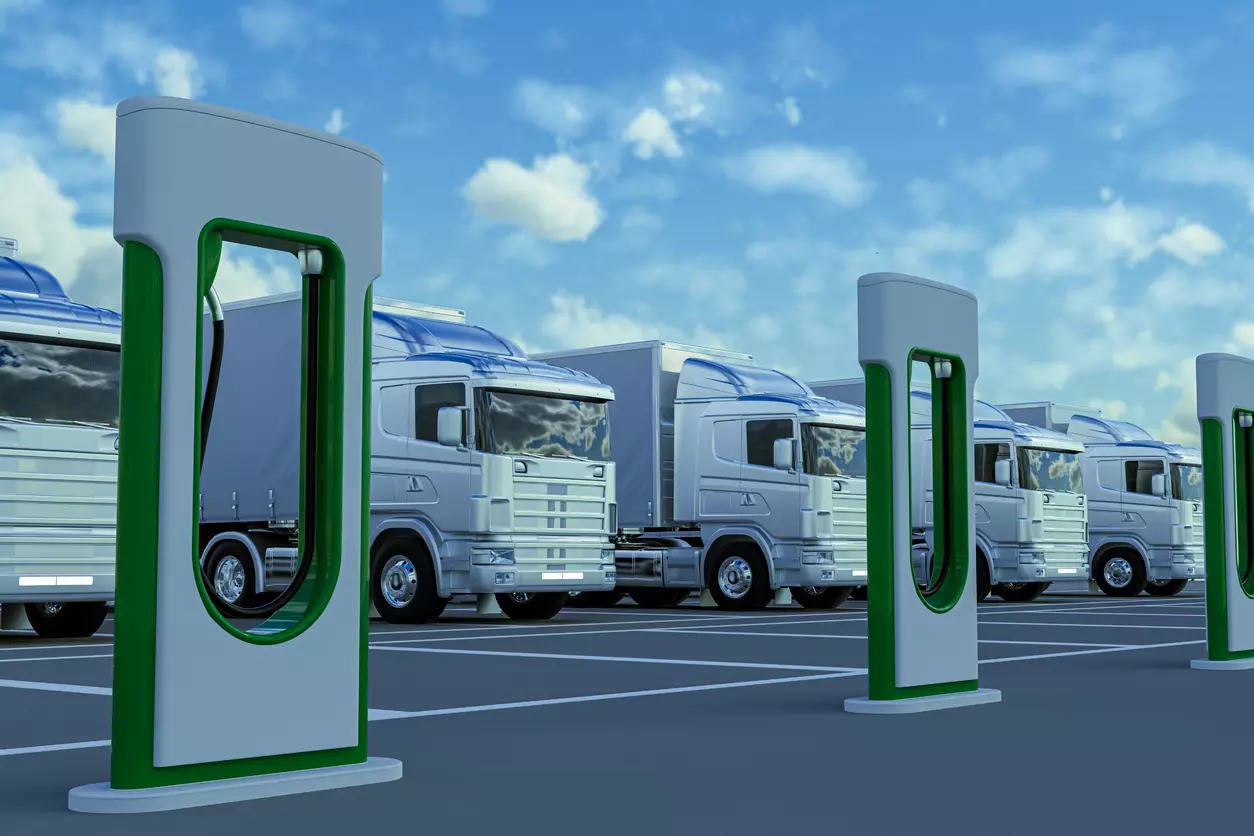
Engineering company Tube Investments of India Ltd is looking to tap a huge opportunity for electric tractors in agriculture and e-trucks in commercial vehicles as it eyes a larger presence in the electric vehicle segment. The company, part of the diversified conglomerate Murugappa Group, is currently engaged in the manufacturing of e-tractors at its facility in Apex Park in Chennai and for e-trucks in Manesar in Haryana, Executive Chairman M A M Arunachalam said. “The automotive sector in India is shifting towards sustainable mobility. Environmental mandates to reduce CO2 emissions are driving countries towards the adoption of cleaner, non-fuel, non-polluting modes of transportation,” he said.
Electric vehicles have emerged as the forerunner of the clean and green transportation mission with wide global adoption, the senior official said.
Tube Investments of India forayed into the electric vehicle business with the acquisition of 65.2% stake in IPLTech Electric Pvt Ltd to become an original equipment manufacturer (OEM) of zero-emission vehicles and participate in the entire productive end of EV spectrum.
IPLTech Electric Pvt Ltd is a company manufacturing electric-medium and heavy-duty commercial vehicles.
The company’s Montra brand of electric three-wheelers for the passenger segment was launched in the market and has received a positive response from the users, he said.
“…the facilities for manufacturing e-tractors for the agriculture segment and the e-trucks for the commercial segment are being built at Apex Park in Chennai Tamil Nadu and Manesar in Haryana (respectively),” he said in the company’s annual report.
“We foresee a huge opportunity for tractors in the country, with supportive government policies on farm mechanization and green energy programs,” he said.
He remarked that the country was one of the largest tractor manufacturers in the world with retail tractor sales during the FY 2022-23 period.
The electric-medium and heavy commercial vehicle segment has a huge and untapped potential with technology and mass adoption still in the nascent stages, he noted.
On the manufacturing of batteries for EVs, he said challenges of import dependence on lithium for the manufacture of lithium-ion EV batteries seem to be finally coming to an end with the discovery of huge deposits of lithium in Jammu and Kashmir along with Degana in Rajasthan, which is estimated to be large enough to make India self-sufficient.
“This will make EV batteries far less expensive and provide further impetus to the EV industry,” he said.
Tube Investments of India Ltd Managing Director Mukesh Ahuja said the company’s biggest focus is the EV segment with immense opportunity for growth.
“Our vision is to operate on multiple platforms in the productive sector of the EV spectrum. We believe we are in a significant stage of disruption in the EV industry in India, with immense unexplored possibilities,” he said.
India would play a significant role in electric vehicles in the near future with supportive government policies auguring well for the industry, he said.
“The EV market in India is estimated to reach USD 7.09 billion by 2025 with a need for a cumulative investment of USD 180 billion in vehicle production and charging infrastructure until 2030 to meet the country’s EV ambitions,” he said citing India Energy Storage Alliance (IESA) report.
“In tractors, we have plans to introduce three different variants in four-wheel drives for different user segments. Work on the production facilities for the tractor is underway with the vehicles slated for launch in FY23-24,” he said.
On the electric-commercial vehicle segment, he said the acquisition of 65.2% stake of IPLTech Electric Pvt Ltd by TI Clean Mobility Private Limited (TICMPL) has gained access to the EV-medium and heavy commercial vehicle segment.
“We have chosen to manufacture the 55-tonne truck, covering short haulage operations for the iron and steel, cement, and construction industries. We have already started work on the manufacturing facility at Manesar, Haryana for making the e-trucks. We would be creating separate distribution networks to cater to the EV platforms,” he said.
















